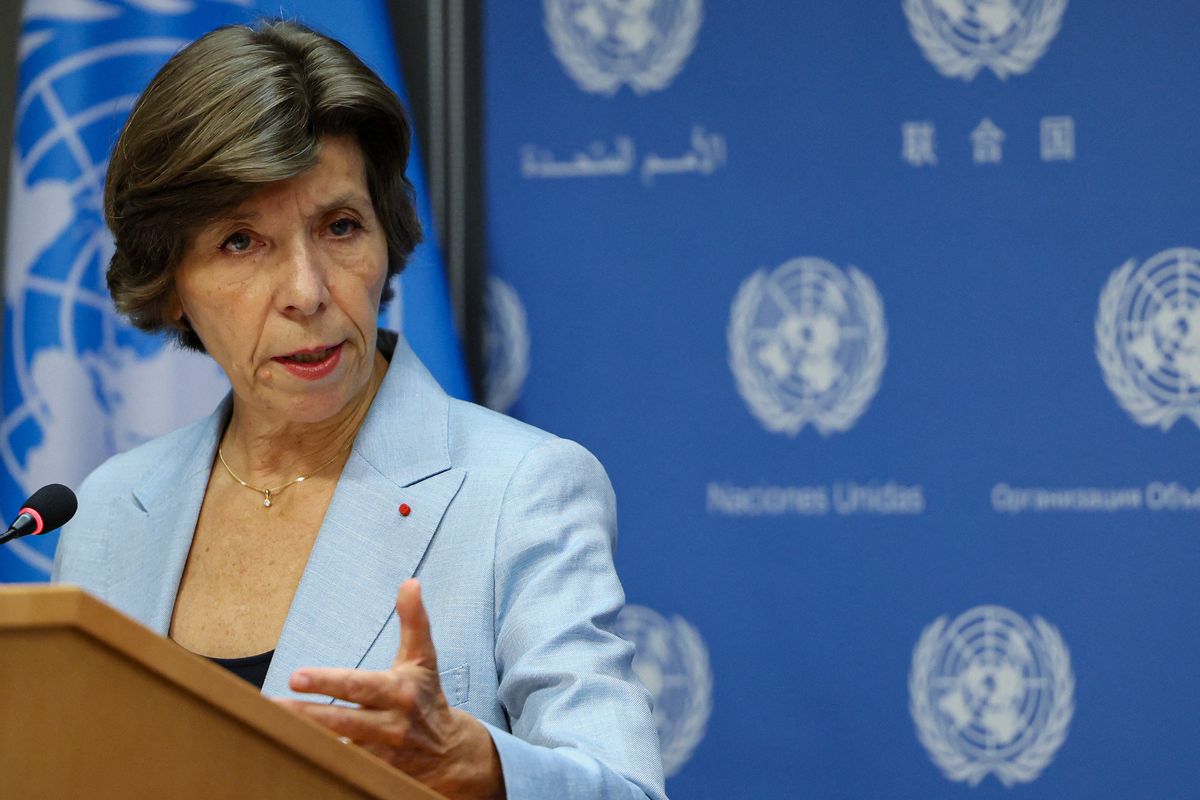UN General Assembly – what you need to know about the 78th session
The UN General Assembly opens for the 78th time on Tuesday in New York City.

A few minutes every morning is all you need.
Stay up to date on the world's Headlines and Human Stories. It's fun, it's factual, it's fluff-free.
The backstory: The UN General Assembly opens every year in September, and world leaders are expected to show up so they can deliver speeches during what’s called the General Debate. The idea is for countries to raise the issues that are important to them on a global stage. Member states are also welcome to express their right to reply after opening speeches, which has led to fierce debates in the past.
The opening debate will run from September 19 to September 26, and then the UN ambassadors begin the work of addressing the issues raised before the next session the following September. The event is also an opportunity for world leaders to speak one-on-one on the sidelines.
More recently: The 77th UN General Assembly session ended a couple of weeks ago on September 5. The president for that term was Csaba Kőrösi from the Group of Eastern European States (EEG), one of the UN’s five regional groups. In the last session, geopolitical tensions spilled over onto the UN stage.
Over the past few years, it’s become clear that China, Russia and the US have been competing for influence and the support of developing countries. With Russia’s war in Ukraine starting in 2021, these tensions have become undeniable. These past few months, climate change-related extreme weather events and natural disasters (heat waves, wildfires, severe flooding, etc.) have been affecting developing countries more than ever, plus political crises (like the coups in Niger and Gabon) are bringing systemic problems into the limelight. There’s a lot of action that the UN and world powers need to do to improve things in the Global South.
The development: The UN General Assembly opens for the 78th time on Tuesday in New York City. World leaders from at least 145 countries are expected at the opening, like Brazilian President Luiz Inácio Lula da Silva, US President Joe Biden and Ukrainian President Volodymyr Zelenskiy. But France, the UK, China and Russia are sending representatives instead of heads of state. Mexico and India are also sending representatives.
For this session, Dennis Francis from Trinidad and Tobago will be the president, representing the Latin American and Caribbean States regional group. The theme for the General Debate is “Rebuilding trust and reigniting global solidarity: Accelerating action on the 2030 Agenda and its Sustainable Development Goals towards peace, prosperity, progress and sustainability for all.”
We’ll probably be seeing a lot more talk around the Russia-Ukraine war. There’ll also be some high-priority meetings on concerns of developing countries in Africa, Latin America and Asia – with issues like climate change, public health, development financing and sustainable development taking center stage. But, with such major geopolitical divisions, especially within the permanent members of the UN Security Council (Russia, China, the US, the UK and France), it’ll be a big task to make progress on these issues.
Key comments:
“We will be gathering at a time when humanity faces huge challenges, from the worsening climate emergency to escalating conflicts, the global cost-of-living crisis, soaring inequalities and dramatic technological disruptions,” UN Secretary-General António Guterres told reporters last week. “People are looking to their leaders for a way out of this mess.”
“The week is an opportunity for smaller countries for the world to lay out their priorities in front of us. I don’t see the week as being a competition between big powers,” US Ambassador Linda Thomas-Greenfield said last week.
"This is a year when the countries of the Global South have set the agenda," said Richard Gowan, UN director of the International Crisis Group think tank. "Non-western countries have played this moment quite effectively. I think they have taken advantage of the fact that they know that the U.S., on one hand, and then Russia on the other, want their support."




Comments ()